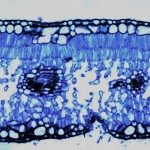Link to Pubmed [PMID] – 17336031
Presse Med 2007 Apr;36(4 Pt 2):727-39
Cholera is an acute intestinal infection that has reached pandemic proportions and presents a major international health concern. Every year, more than 100000 cholera cases and 2000-3000 deaths are officially reported to WHO. The real figures for cholera are thought to be much higher, however, due to underreporting and other limitations of surveillance systems. Cholera is caused by two serogroups (O1 and O139) of a gram-negative bacterium, Vibrio cholerae. Cholera toxins cause a massive outpouring of electrolyte-rich isotonic fluid into the bowel and can lead to volume depletion and shock. In poor sanitary and individual hygiene conditions, the massive release of cholera vibrios into the environment intensifies and exacerbates cholera epidemics, which thus serve as clear markers of poverty and lack of basic sanitation. Rehydration therapy, either intravenous or oral, considerably decreases the number of deaths. The WHO recommends antibiotics for cholera cases with severe dehydration. If left untreated, cholera has a 25-50% mortality rate. Treatment reduces this to less than 1%. Bacteriological diagnosis of cholera is reasonably easy because cholera bacteria are abundant in stool. Epidemics, however, often occur in areas with either limited or no laboratory facilities. A rapid and accurate diagnosis of cholera is essential to mobilize resources for treatment and containment of the epidemic. Therefore, the Pasteur Institute has developed a rapid diagnostic test based on a one-step immunochromatographic technique, which should be commercially available soon. To date, two oral cholera vaccines have been shown to offer good (more than 70%) short-term (one year) protection. WHO recommends these vaccines as an additional public health tool to be implemented with the standard cholera control measures, including provision of safe drinking water and adequate sanitation. Nonetheless, a cholera vaccine that can offer a long-term protection for all age groups, including children younger than five years, is still needed.


